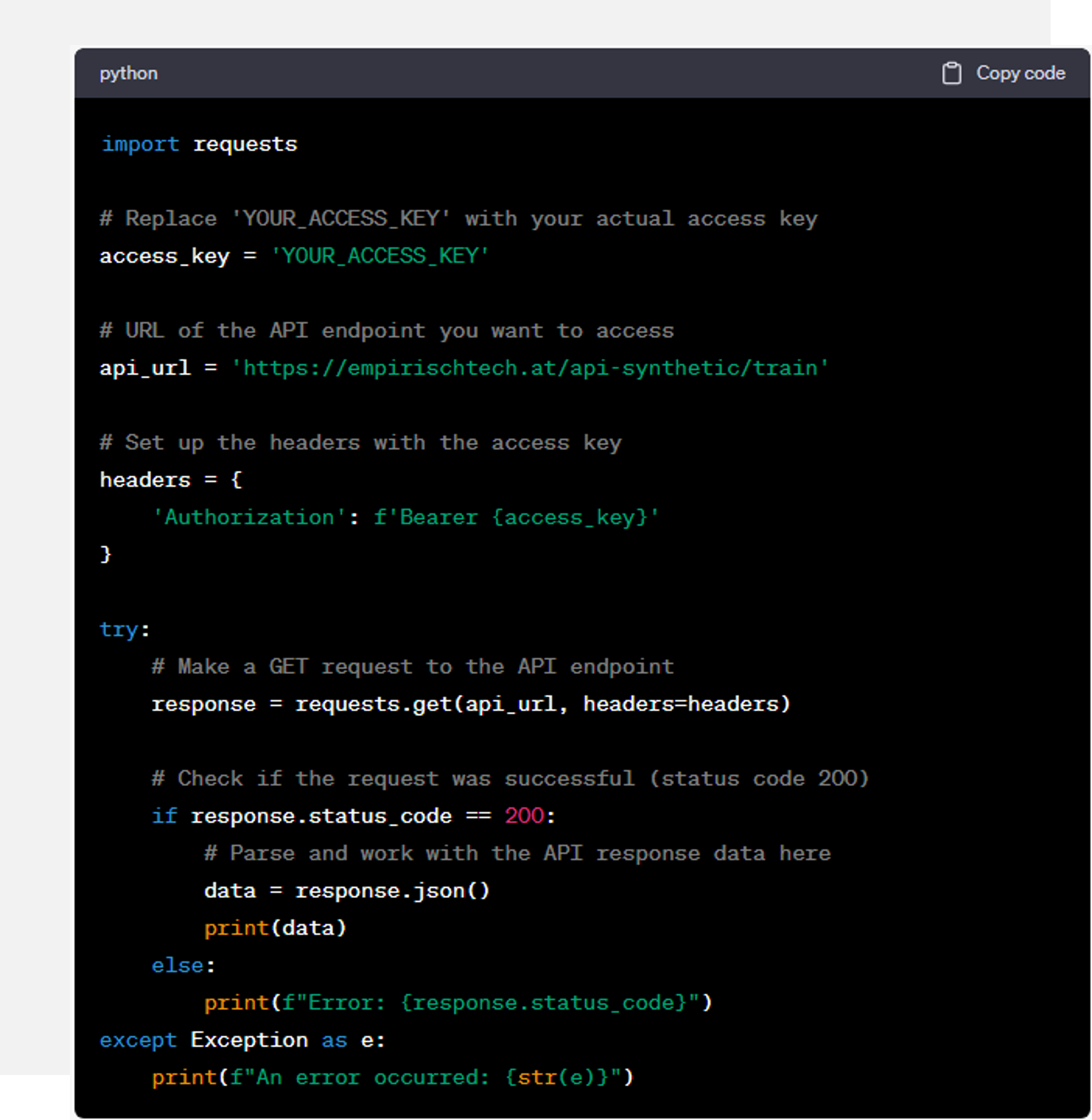Explore the future of data with our synthetic data services. In a world where data is king, we empower businesses to leverage the full potential of their information assets without exposing themselves to privacy risks.
Our APIs streamline the process of generating anonymized and secure synthetic data, enabling you to accelerate innovation while safeguarding privacy.
Upload your dateset using the easy API access.
Train generative AI models to grasp the statistical characteristics of your dataset.
Validate models and use cases with our quality and privacy scores.
Generate on-demand whenever and how much is needed.

Enhance machine learning model training by using diverse and realistic synthetic datasets that facilitate model development and evaluation.
Open API access
A hands-on tutorial
Learn More